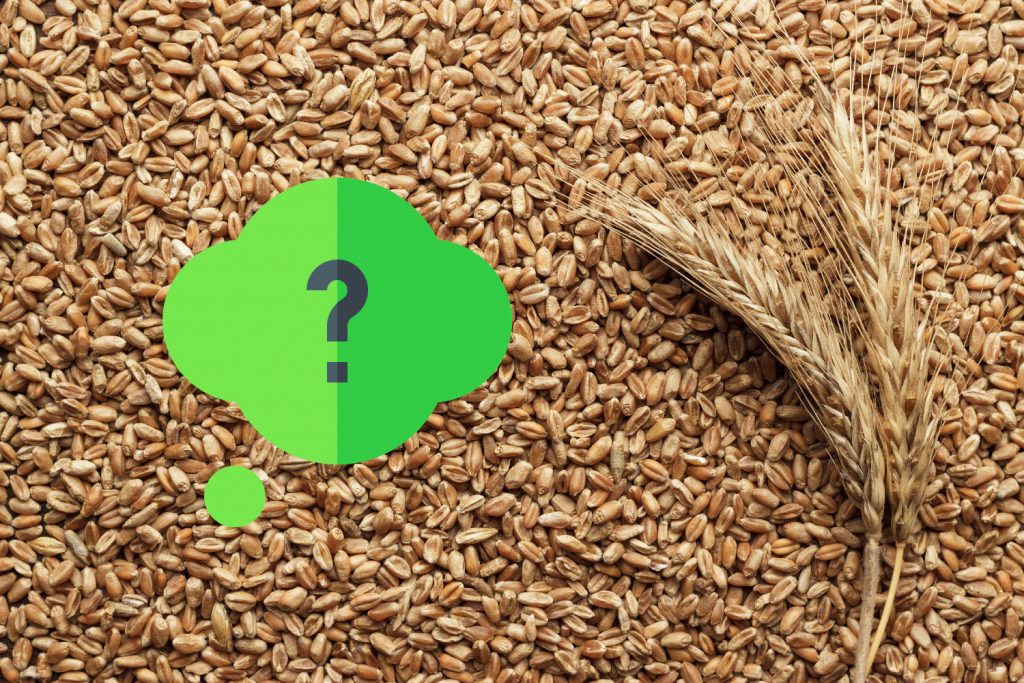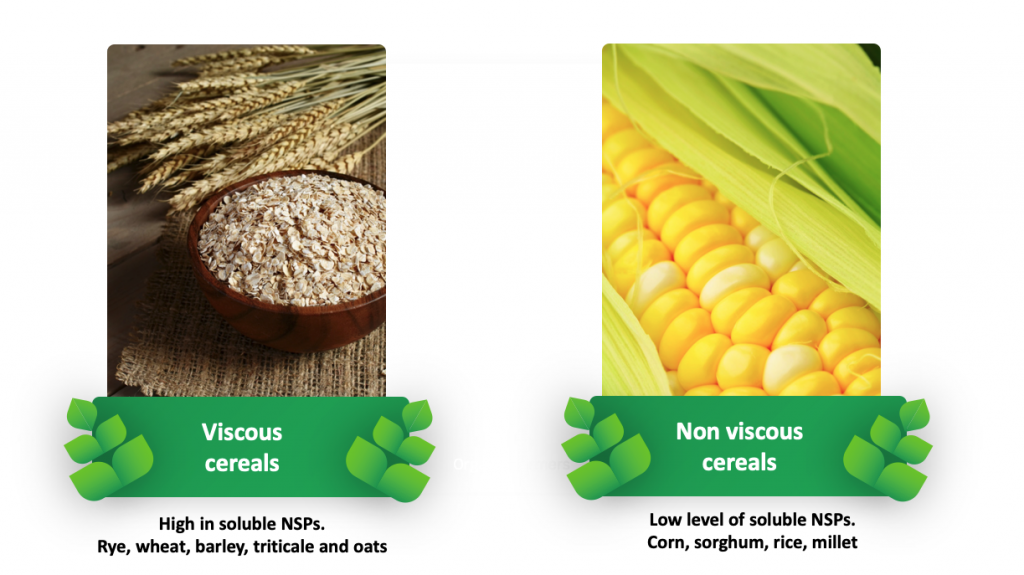11 Aug What are non-starch polysaccharides and why do they matter?

As corn prices skyrocket, it becomes necessary to look at alternative cereals. Rye, wheat, barley, triticale, and oats are viable alternatives to corn; however, while corn is highly digestible, these cereals contain anti-nutritional factors that interfere with digestion and the absorption of nutrients. The main antinutritional factors are non-starch polysaccharides (NSP).
Non-starch polysaccharides are polymeric carbohydrates that are different from starch. NSP cannot be digested by the animals because they are cross-linked (a cross-link is a bond that links one polymer chain to another).
NSPs can be classified according to their chemical extraction:
- Cellulose: Structural component of vegetal cell walls.
- Non cellulosic polysaccharides (also called hemicelluloses): a highly diverse group that includes arabinoxylans, glucans, mannans, galactans, and fructosans.
- Pectins: chemically complex polysaccharides that are present in the cell wall and as a binder between cells
NSPs can also be classified according to their solubility in water. Their water solubility is the most relevant factor to consider in animal nutrition:
- NSPs that are totally or partially soluble in water: Increase the viscosity of the intestinal content, impairing gut health, nutrient digestion and absorption. Arabinoxylans and beta-glucans.
- NSPs that are not soluble in water: Insoluble NSPs are the bulk of the total fiber in diet. They are beneficial for gut health (if not overdosed) because they regulate gut motility and passage rate, give a sensation of satiety and promote a healthy development of the gut. Cellulose.
Cereals are classified as viscous or non-viscous according to their content of soluble NSPs.

NSP hydrolyzing enzymes (carbohydrases, including xylanase and beta-glucanase) are added to feeds containing viscous cereals to counteract the negative effects of soluble NSPs. In some cases enzyme supplementation does not result in an improvement in animal’s performance, for two main reasons:
- NSP are not chemically uniform in composition, their profile varies from feedstuff to feedstuff. An enzyme that can achieve a good digestibility in a feedstuff may not be able to achieve the same in another feedstuff.
- Poor quality enzymes: some enzymes show poor activity, poor stability to heat and to the conditions of the digestive environment.
Products of choice
GrowthPlus© is added to feed to maintain and improve digestive health. It is formulated with synergistic ingredients:
- Bactericidal and fungicidal plant extracts, combined with organic acids for better effectiveness, that reduce the number of pathogenic microbes in the digestive system.
- Plant extracts with prebiotic effect, that promote the growth of beneficial bacteria in the gut.
- Immunostimulant and antioxidant plant extracts.
- Silicates with mycotoxin binding function.
It is especially useful in cases of gizzard diseases, necrotic enteritis, feed passage and other enteritis. It is also used as a natural growth promoter and to replace antibiotic growth promoters.
PlusProtect Digestive© is intended for digestive health in birds and rabbits of all ages. It is formulated with synergistic ingredients:
- Essential oils with bactericidal and fungicidal activity
- Plant extracts with prebiotic effect.
- Immunostimulant and antioxidant essential oils
PlusProtect Digestive© is useful to improve gut health in the following cases:
- Candidiasis in beak, crop and gizzard
- Bacterial infections in gizzard. In severe cases, it is better to give together with our PlusBind© line (mycotoxin binders)
- Bacterial infections in the intestines (necrotic enteritis; E.coli; Salmonella sp.)
- General digestive imbalances, such as feed passage.
Do not miss any of our articles!
Subscribe to our monthly newsletter

Certain health statements may not be applicable in your region.

